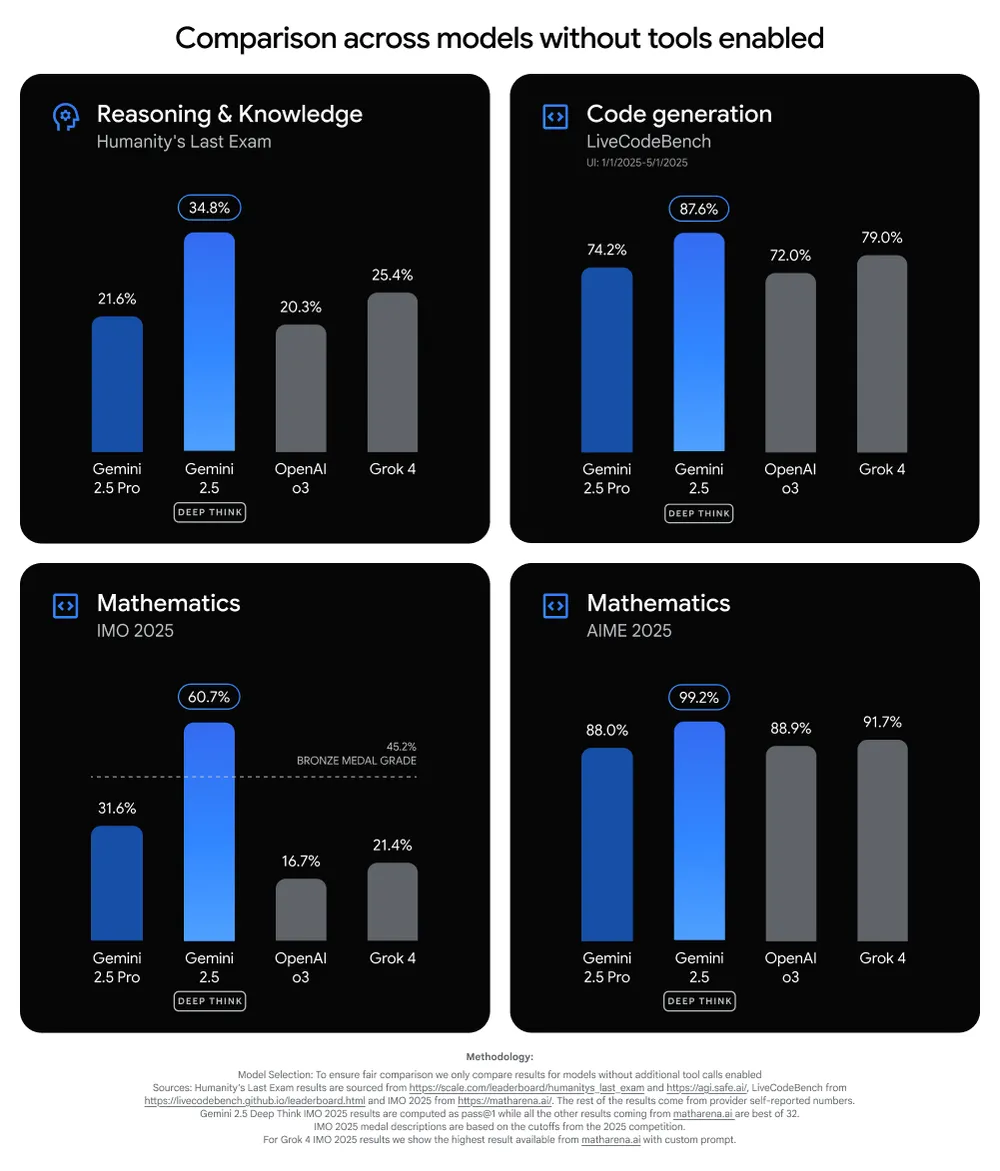Artificial intelligence is evolving from simply providing answers to actively reasoning through complex problems. Google's latest Gemini 2.5 Deep Think update exemplifies this shift, offering Google AI Ultra subscribers access to a model that approaches problem-solving with the analytical depth of a mathematician.
By introducing parallel thinking and advanced reinforcement learning, Deep Think enables users and researchers to tackle creative and strategic challenges more intuitively than ever before.
Parallel Thinking and Extended Reasoning: How Deep Think Works
The true innovation behind Deep Think lies in its ability to mimic human problem-solving by exploring multiple solutions simultaneously. Unlike its predecessors, this model deliberately extends its "thinking time", testing and refining a diverse set of hypotheses before producing a final answer.
This parallel exploration, powered by advanced reinforcement learning, fuels both creativity and robust outcomes as the system learns from each iteration.
These advances have been validated in rigorous testing. A research version of Deep Think earned top honors at the International Mathematical Olympiad (IMO), demonstrating its capability to solve intricate mathematical challenges.
The released version, while much faster, continues to achieve high marks on the IMO 2025 benchmark, making advanced reasoning accessible for daily use.

Image: Google
Real-World Impact: Creative and Analytical Power at Your Fingertips
Gemini 2.5 Deep Think is not just for academic mathematicians. Its advanced reasoning benefits a broad range of demanding tasks:
- Iterative development and design: Deep Think helps users build complex solutions step-by-step, enhancing both the functionality and aesthetics of products and websites.
- Scientific discovery: Researchers can leverage its reasoning to generate mathematical conjectures or analyze dense scientific literature efficiently, accelerating breakthroughs.
- Algorithmic development and coding: Developers can rely on Deep Think for challenging coding problems, as it weighs trade-offs and optimizes solutions, often outperforming industry benchmarks.
On competitive benchmarks, Gemini 2.5 Deep Think consistently leads in reasoning, coding, and mathematics, outpacing previous Gemini models and other top-tier systems like OpenAI 03 and Grok 4.
Commitment to Responsible and Safe AI
With increasing AI capabilities comes a heightened responsibility for safety. Google has prioritized content safety and objectivity in Deep Think, resulting in a model that is more discerning about potentially harmful requests.
While this caution can sometimes lead to unnecessary refusals, ongoing safety evaluations and mitigation efforts are in place to ensure responsible deployment. For a deeper dive into these safety features, refer to the official model card.
Getting Started: Access and Experimentation
Deep Think is now accessible to Google AI Ultra subscribers directly within the Gemini app. By enabling it in the prompt bar, users receive a set number of advanced prompts daily, along with seamless integration for code execution and Google Search. The model delivers more comprehensive and thoughtful responses, making it a valuable tool for both individuals and teams.
Developers and enterprise users can request API access as Google expands the rollout to trusted testers, aiming to enhance usability and broaden the impact of Deep Think’s advanced reasoning capabilities.
The Road Ahead: Transforming AI Problem Solving
Gemini 2.5 Deep Think represents a pivotal advance in AI’s capacity to address complex, creative tasks.
By combining parallel, human-like reasoning with a strong commitment to safety, Google is setting a new standard for intelligent, trustworthy AI. As this technology becomes more widely adopted, it promises to reshape how individuals and organizations approach discovery, development, and problem-solving.

Gemini 2.5 Deep Think: The Next Leap in AI Problem Solving